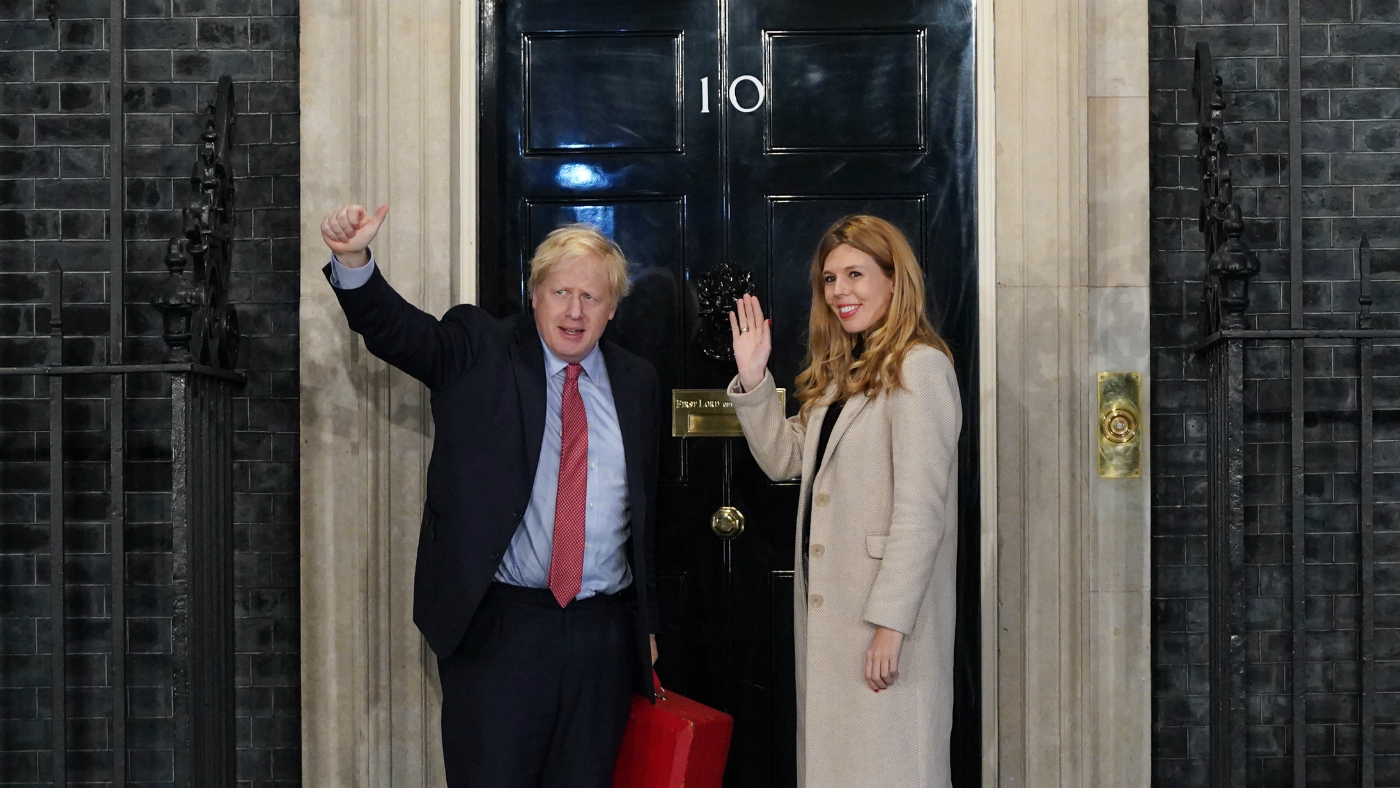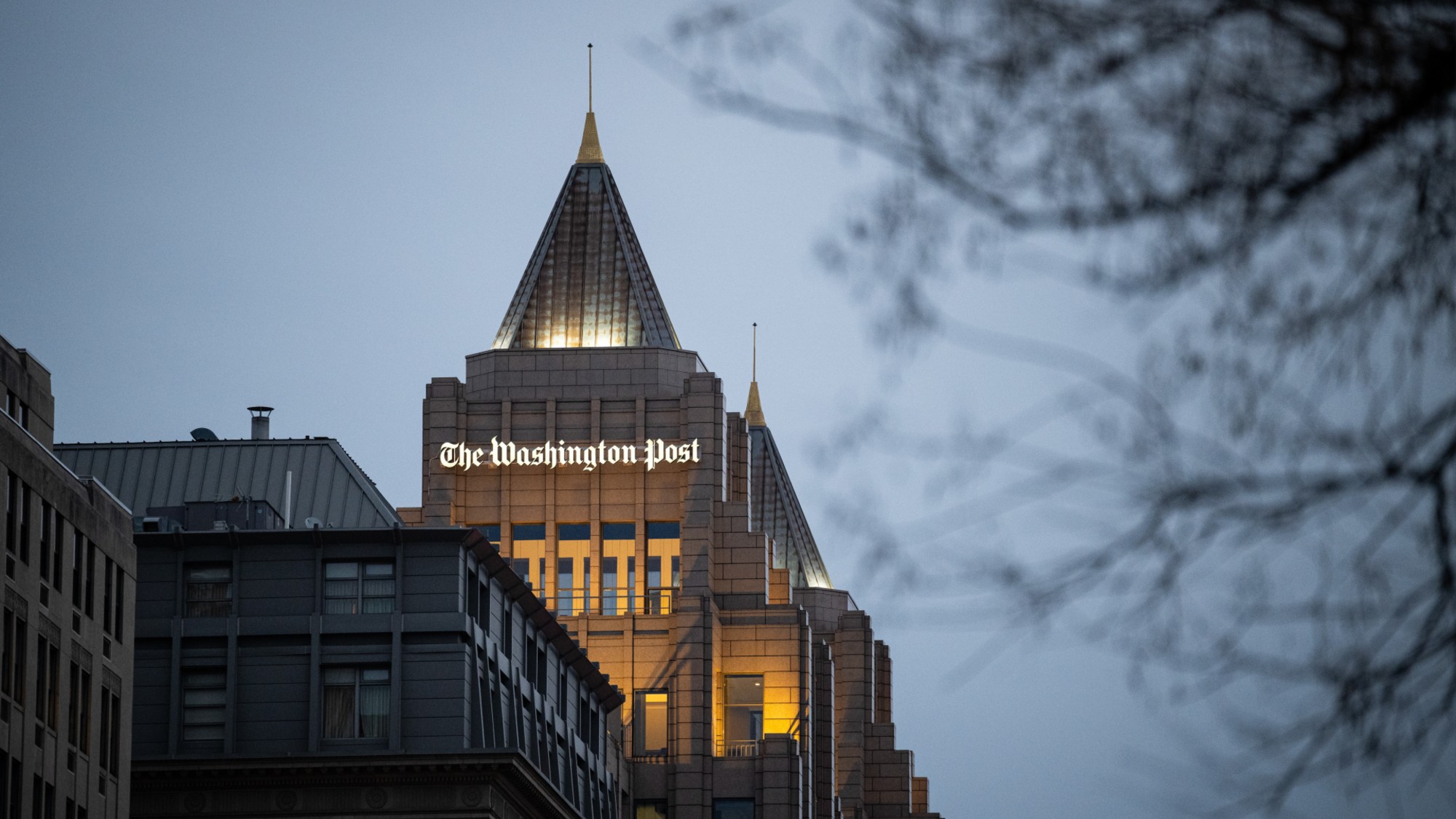Boris Johnson: first 100 days examined
PM’s short tenure has been fraught with unprecedented crises, from potential war with Iran to the Covid-19 pandemic

A free daily email with the biggest news stories of the day – and the best features from TheWeek.com
You are now subscribed
Your newsletter sign-up was successful
When Boris Johnson and the Conservative party swept to a stunning victory in the UK general election in December last year, it looked as if the dust was finally ready to settle after years of Brexit-fuelled turmoil in the halls of Parliament.
But now, as we approach 100 days since that historic victory, the political landscape of both Britain and the world at large are barely recognisable.
From US President Donald Trump bringing the planet perilously close to the outbreak of World War III to an unprecedented pandemic that has severely disrupted almost every facet of modern life, Johnson’s first century of days since the election has been extraordinarily eventful – perhaps more so than any prime minister in modern history.
The Week
Escape your echo chamber. Get the facts behind the news, plus analysis from multiple perspectives.

Sign up for The Week's Free Newsletters
From our morning news briefing to a weekly Good News Newsletter, get the best of The Week delivered directly to your inbox.
From our morning news briefing to a weekly Good News Newsletter, get the best of The Week delivered directly to your inbox.
With the country gearing up for a potentially devastating effort to curb the spread of the coronavirus through herd immunity – another controversial Johnson policy decision – it’s likely that this outbreak could define his legacy as a leader.
But what has his premiership looked like until this point? The Week examines his first 100 days with a parliamentary majority.
The election
After a tumultuous and often ugly battle between the Conservatives and Jeremy Corbyn’s highly polarising Labour Party, the UK electorate on 12 December handed Johnson an emphatic majority in the general election, with Tories winning swathes of historically Labour-held seats in the North, surpassing even his own campaign’s expectations to secure a resounding victory.
A free daily email with the biggest news stories of the day – and the best features from TheWeek.com
Prior to the election, Johnson had stated that his plans for the first 100 days of his new government would focus on leaving the EU and passing a tax-cutting post-Brexit budget which would include a rise in the National Insurance threshold which would save workers around £85 a year.
He also claimed that new laws would be passed to end the automatic release of serious violent and sexual offenders at the halfway point of their sentences, while other measures being touted by the Tories included improving mobile phone signals in the countryside and increasing funding for schools.
Queen’s Speech
The Queen’s Speech, which serves as the centrepiece of the new session of Parliament, was held around a week later on 19 December.
In it, proposed new laws on Brexit and the NHS took centre stage, with Johnson’s 2020 programme also including additional funding for adult and social care, legislation to send terrorists to prison for longer, and a “modern, fair points-based immigration system”.
–––––––––––––––––––––––––––––––For a round-up of the most important stories from around the world – and a concise, refreshing and balanced take on the week’s news agenda – try The Week magazine. Start your trial subscription today –––––––––––––––––––––––––––––––
The first major challenge of Johnson’s new government arose in January 2020, when Qasem Soleimani, the leader of the Iranian Revolutionary Guards' elite Quds Force, was killed by a drone strike in Iraq in an attack ordered by US President Donald Trump.
The strike sparked a major diplomatic crisis between Washington and Tehran, with shadow foreign secretary Emily Thornberry telling Sky News that the situation was “a major lurch towards war” – one which many feared the UK would become embroiled in after Johnson expressed sympathy for the assassination by claiming Soleimani had played a “leading role [in] the deaths of thousands of innocent civilians and Western personnel”.
But after an exchange of missile strikes between the US and Iran – along with Iranian public opinion turning against the government following the accidental shooting-down of Ukraine International Airlines Flight 752 – the situation petered out and war was avoided.
Getting Brexit done
The Tories’ gigantic margin of victory in December’s general election can be pinned on a number of factors, but few were as pivotal as Johnson’s pledge to finally “Get Brexit Done” after three-and-a-half years of delay following the 2016 referendum.
In January, Boris Johnson said the UK has “crossed the Brexit finish line” after Parliament passed legislation that paves the way for the country to leave the EU, with the bill receiving royal assent on 23 January.
On 31 January, the UK finally left the EU, sparking the beginning of a months-long transition period which lasts until the end of 2020. The prime minister said the UK could now “move forwards as one” and put “years of rancour and division behind it”.
Reshuffle
In February, Johnson carried out a sweeping reshuffle of cabinet ministers, with Andrea Leadsom, Geoffrey Cox and Theresa Villiers all being sacked. More controversial, however, was the sacking of Julian Smith as Northern Ireland secretary “despite his overseeing the restoration of the Northern Ireland assembly following three years of deadlock”, The Guardian reports.
But the most problematic consequence of the reshuffle for Johnson was Sajid Javid’s shock decision to quit as Chancellor of the Exchequer in the middle of the process, having rejected the prime minister's order to fire his team of aides. Rishi Sunak, who just seven months earlier was a junior housing minister, was appointed in his place.
Floods
Starting in November 2019, parts of the UK were inundated with some of the heaviest average monthly rainfall since records began, with particularly bad spells in February as a result of Storms Ciara and Dennis.
As far back as December, Johnson has come under considerable fire for his supposed inaction with regard to the flooding, having not visited the worst-hit areas. Luke Pollard, shadow environment secretary, said in February that it was a “disgrace” that Johnson had not visited affected communities, while Labour leader Jeremy Corbyn accused him in parliament of being a “part-time prime minister”.
Priti Patel row
In February and March, Home Secretary Priti Patel faced a wave of bullying allegations after a number of senior civil servants claimed they were mistreated by the controversial politician when she was the secretary of state for international development.
The Guardian quotes sources claiming that the home secretary “harassed and belittled” staff in her private office in 2017 – allegations she denies, but ones that increased pressure on Johnson to ask her to step down.
In early March, Boris Johnson made the decision to launch a Cabinet Office investigation into the claims Patel had lied and bullied her permanent secretary, Sir Philip Rutnam, but added that he “absolutely” has confidence in Patel.
Coronavirus
The biggest crisis of Johnson’s tenure has come as a result of the ongoing coronavirus outbreak, his response to which has earned him no shortage of criticism. As Politico notes, the UK under Johnson “has been something of an outlier in terms of its response to the crisis”, choosing not to follow other countries in shutting schools and public meeting places and instead falling back on a highly contentious “herd immunity” strategy which many scientists say threatens the lives of thousands.
On Monday, Johnson appeared to make something of a U-turn, telling the public to avoid all unnecessary contact and travel and to stay away from public spaces. But to many, including Frances Ryan in The Guardian, the “result of all this has been at best unanswered questions, and at worst frantic confusion”.
Within hours of his announcement on Monday, #ResignBorisJohnson began trending on Twitter, with many users condemning his response to the crisis.
First Budget
In the midst of the coronavirus crisis, Johnson’s newly appointed chancellor Rishi Sunak unveiled his first Budget, in which he appeared to end years of government-sanctioned austerity by pledging billions in order to make to Tories “the party of public services”, as he put it.
The spending plan includes a £30bn stimulus package to counter the economic impact of the coronavirus outbreak, with Sunak pledging “whatever it takes, whatever it costs” to help the NHS tackle the crisis.
BBC political editor Laura Kuenssberg says the £12bn announced to tackle coronavirus in last week’s Budget is starting to look “completely inadequate”, with the government due to announce more financial measures later today.
-
 How the FCC’s ‘equal time’ rule works
How the FCC’s ‘equal time’ rule worksIn the Spotlight The law is at the heart of the Colbert-CBS conflict
-
 What is the endgame in the DHS shutdown?
What is the endgame in the DHS shutdown?Today’s Big Question Democrats want to rein in ICE’s immigration crackdown
-
 ‘Poor time management isn’t just an inconvenience’
‘Poor time management isn’t just an inconvenience’Instant Opinion Opinion, comment and editorials of the day
-
 Witkoff and Kushner tackle Ukraine, Iran in Geneva
Witkoff and Kushner tackle Ukraine, Iran in GenevaSpeed Read Steve Witkoff and Jared Kushner held negotiations aimed at securing a nuclear deal with Iran and an end to Russia’s war in Ukraine
-
 How corrupt is the UK?
How corrupt is the UK?The Explainer Decline in standards ‘risks becoming a defining feature of our political culture’ as Britain falls to lowest ever score on global index
-
 ‘The mark’s significance is psychological, if that’
‘The mark’s significance is psychological, if that’Instant Opinion Opinion, comment and editorials of the day
-
 ‘My donation felt like a rejection of the day’s politics’
‘My donation felt like a rejection of the day’s politics’Instant Opinion Opinion, comment and editorials of the day
-
 How Iran protest death tolls have been politicised
How Iran protest death tolls have been politicisedIn the Spotlight Regime blames killing of ‘several thousand’ people on foreign actors and uses videos of bodies as ‘psychological warfare’ to scare protesters
-
 ‘It may portend something more ominous’
‘It may portend something more ominous’Instant Opinion Opinion, comment and editorials of the day
-
 The high street: Britain’s next political battleground?
The high street: Britain’s next political battleground?In the Spotlight Mass closure of shops and influx of organised crime are fuelling voter anger, and offer an opening for Reform UK
-
 What are Donald Trump’s options in Iran?
What are Donald Trump’s options in Iran?Today's Big Question Military strikes? Regime overthrow? Cyberattacks? Sanctions? How can the US help Iranian protesters?